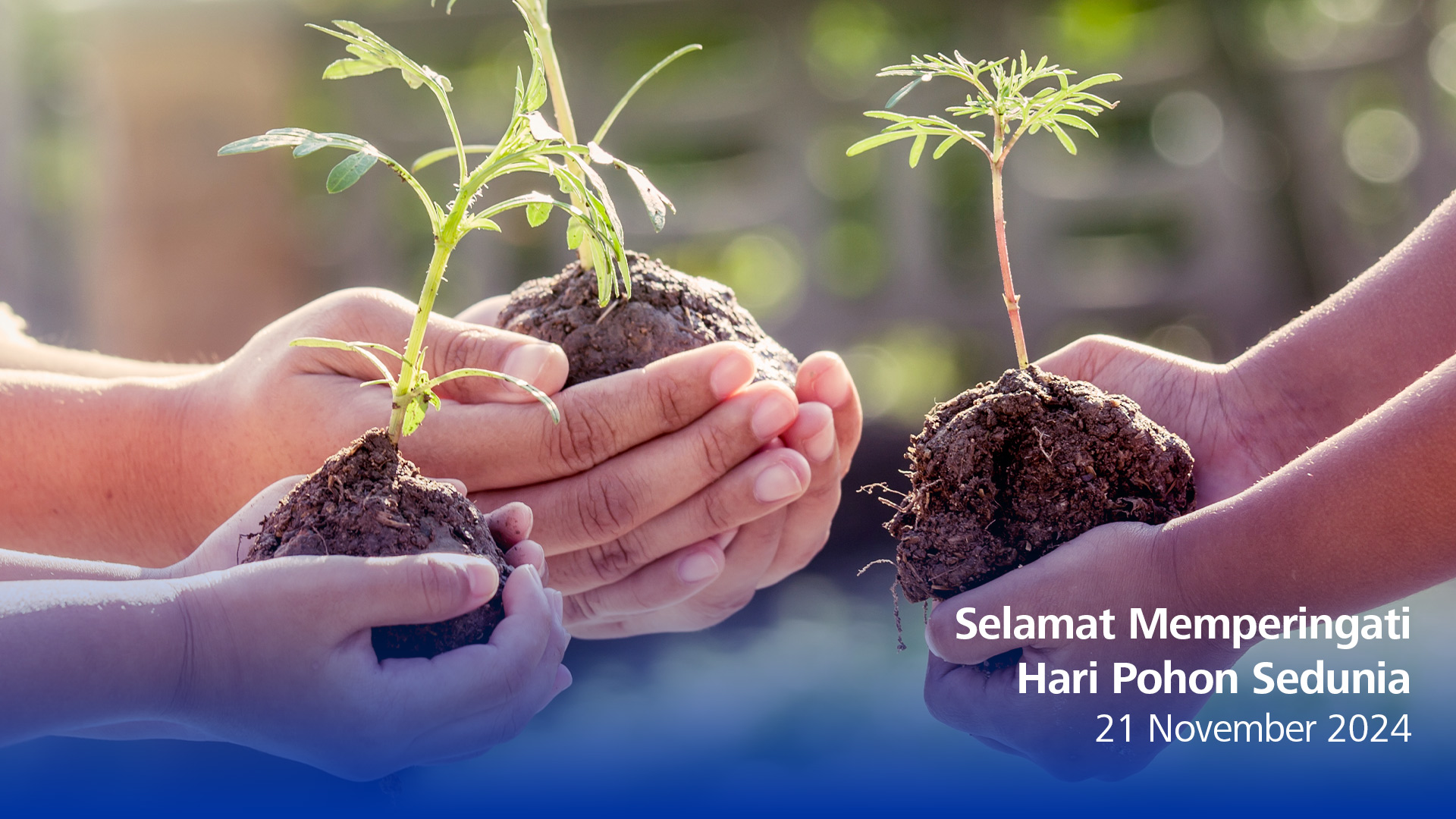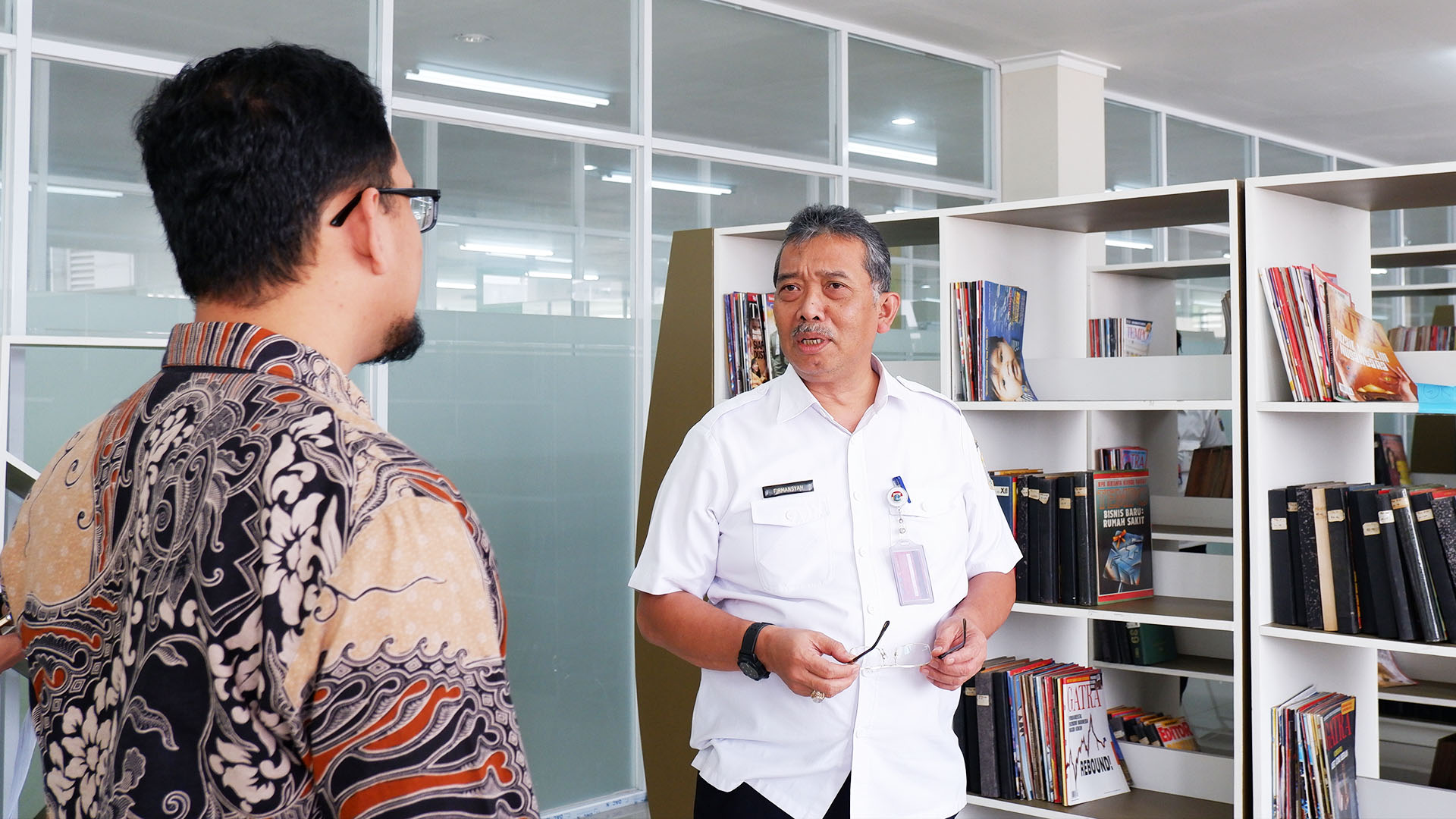Urban Planning and Green Zone Management in the Era of Industry 4.0

Rapid urbanization poses significant challenges to cities, including the depletion of green spaces. Many vacant lands are converted into residential or industrial areas, often at the expense of water catchment areas and essential green zones. As a result, risks such as rising temperatures, air pollution, and tidal flooding have escalated. For instance, in North Jakarta, the loss of mangrove forests in Penjaringan and Tanjung Priok has significantly contributed to severe seawater flooding.
World Tree Planting Day, commemorated annually on November 21, serves as a reminder of the importance of restoring urban ecosystems through urban planning that prioritizes green zones. To support the optimal development of green ecosystems, effective urban planning can integrate greening initiatives into development plans to maintain environmental balance and support Indonesia’s goal of achieving Net Zero Emissions by 2030.
Trees and green spaces play a crucial role in modern urban planning. Beyond absorbing carbon dioxide to improve air quality, trees provide natural cooling effects, reduce flood risks, and create public spaces that promote physical and mental well-being. Developing green zones in strategic areas, such as coastal regions, not only enhances environmental security but also strengthens urban resilience against climate change.
To support these efforts, Dian Nusantara University (UNDIRA), through its Civil Engineering Program, offers education on sustainable urban planning. Students are equipped with knowledge of planning, construction, and infrastructure conservation, including roads, buildings, bridges, and public facilities. During the Technofest 2024 event, UNDIRA students showcased various innovative research projects on urban development efficiency and traffic monitoring, demonstrating their tangible contributions to eco-friendly urban planning.
Aligned with its educational mission, UNDIRA’s Civil Engineering Program aims to produce graduates who are skilled in designing and analyzing elements and systems in civil engineering using analytical, computational, and/or experimental tools. Graduates are also trained to uphold professional responsibility and environmental awareness in project execution.
World Tree Planting Day is not merely a symbol of environmental concern but also a momentum to strengthen sustainable urban planning. By integrating greening initiatives into urban development, cities can become more resilient in addressing future challenges, creating healthier, more comfortable, and livable environments for their communities.
(Danang Respati Wicaksono / HUMAS UNDIRA)
Press Contact :
Biro Humas & Sekretariat Universitas Dian Nusantara
Facebook : www.facebook.com/undiraofficial
Instagram : www.instagram.com/undiraofficial
Twitter : www.twitter.com/undiraofficial
www.undira.ac.id
Other
.jpg)
Ethanol and Its Use in Motor Vehicles: Is It Optimal? UNDIRA Mechanical Engineering Lecturers Has a Few Things To Say
Read more
Reflection and Meaning of the Struggle of Pancasila Birth Day
Read more
Working Visit of DKI Jakarta Provincial Library and Archives Office to Dian Nusantara University Library
Read more
Campus Tanjung Duren
Jln. Tanjung Duren Barat II No. 1
Grogol, Jakarta Barat. 11470
Campus Green Ville
JIn. Mangga XIV No. 3
Campus Cibubur
Jln. Rawa Dolar 65
Jatiranggon Kec. Jatisampurna, Bekasi. 17432







